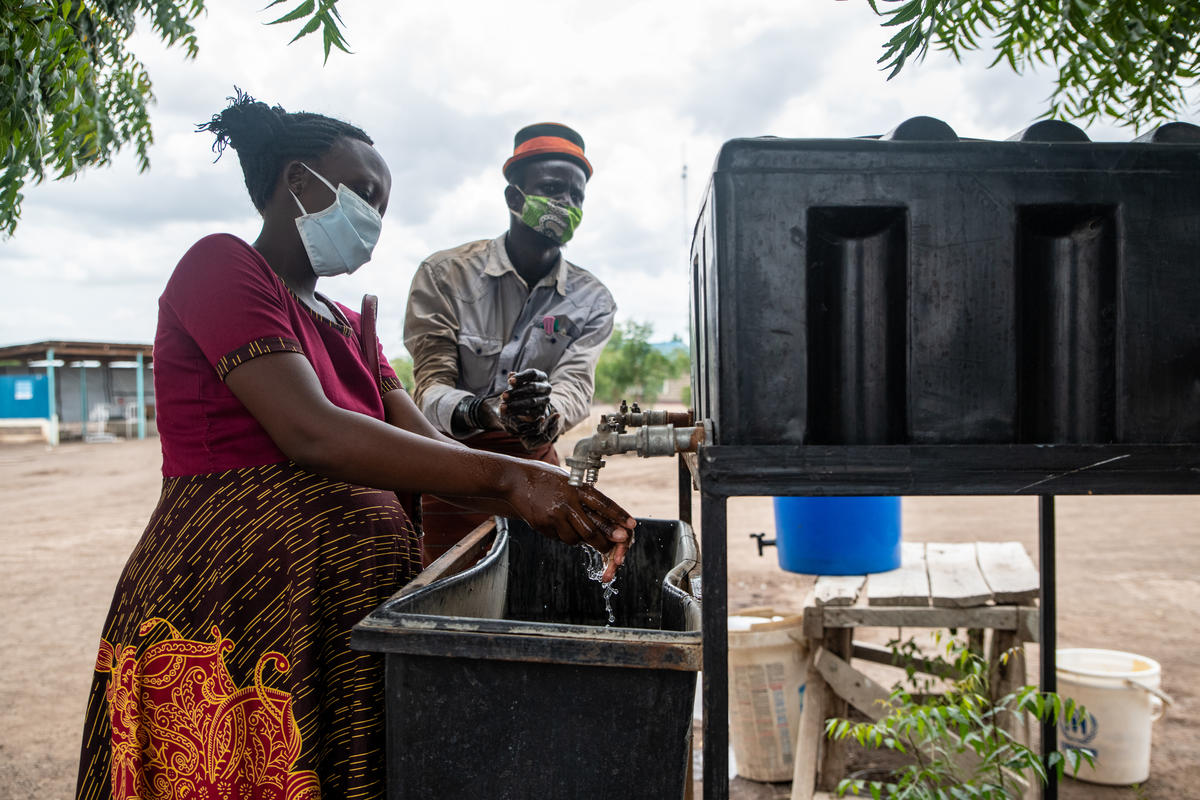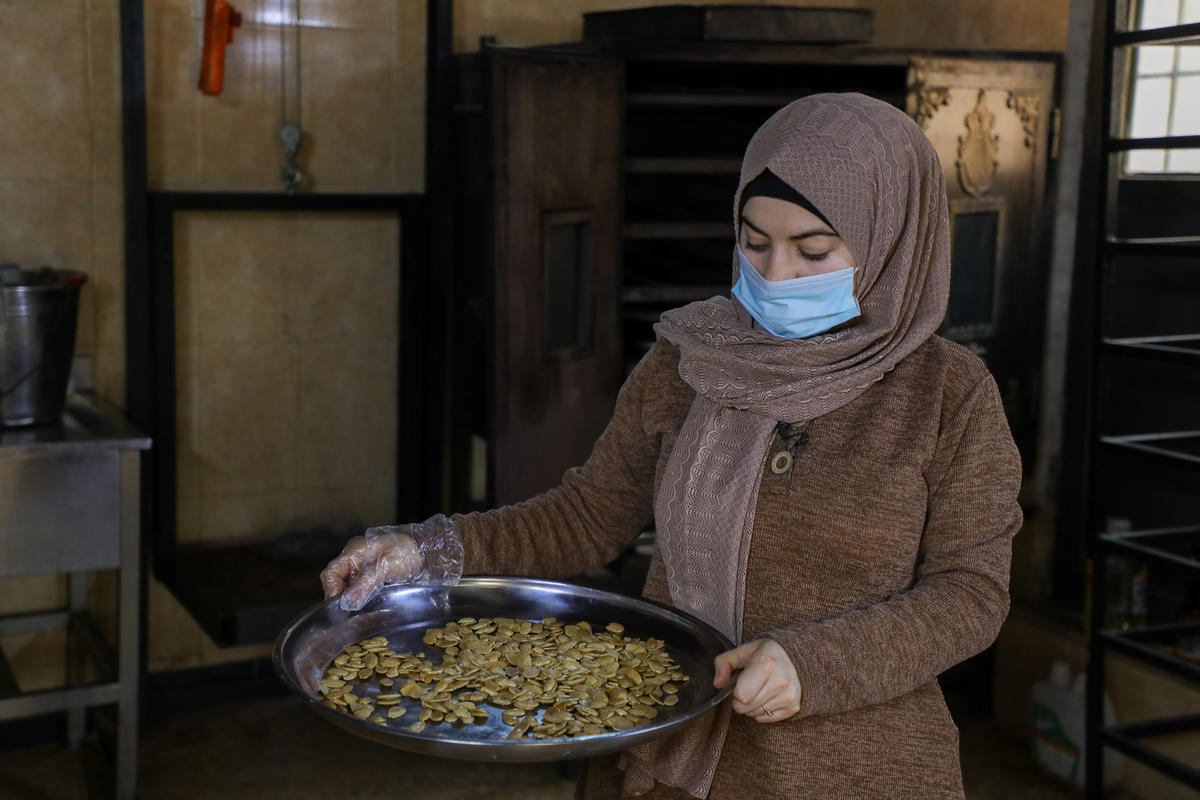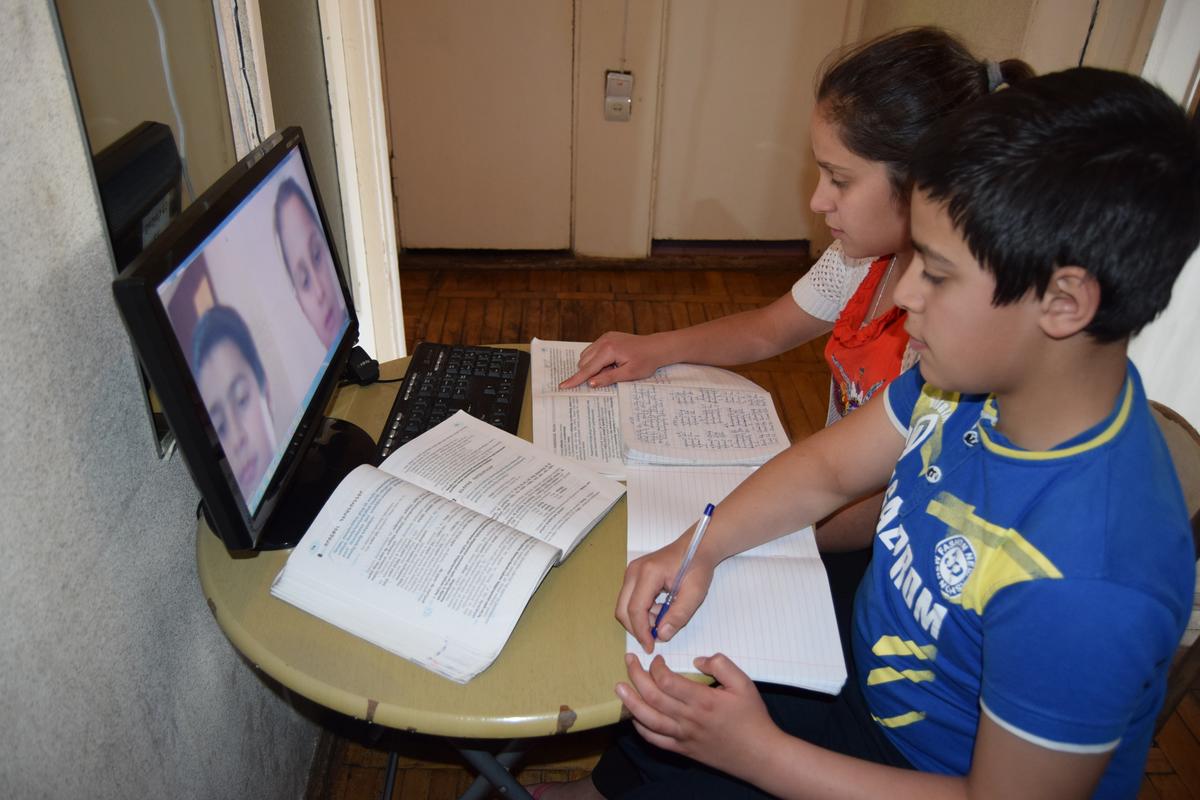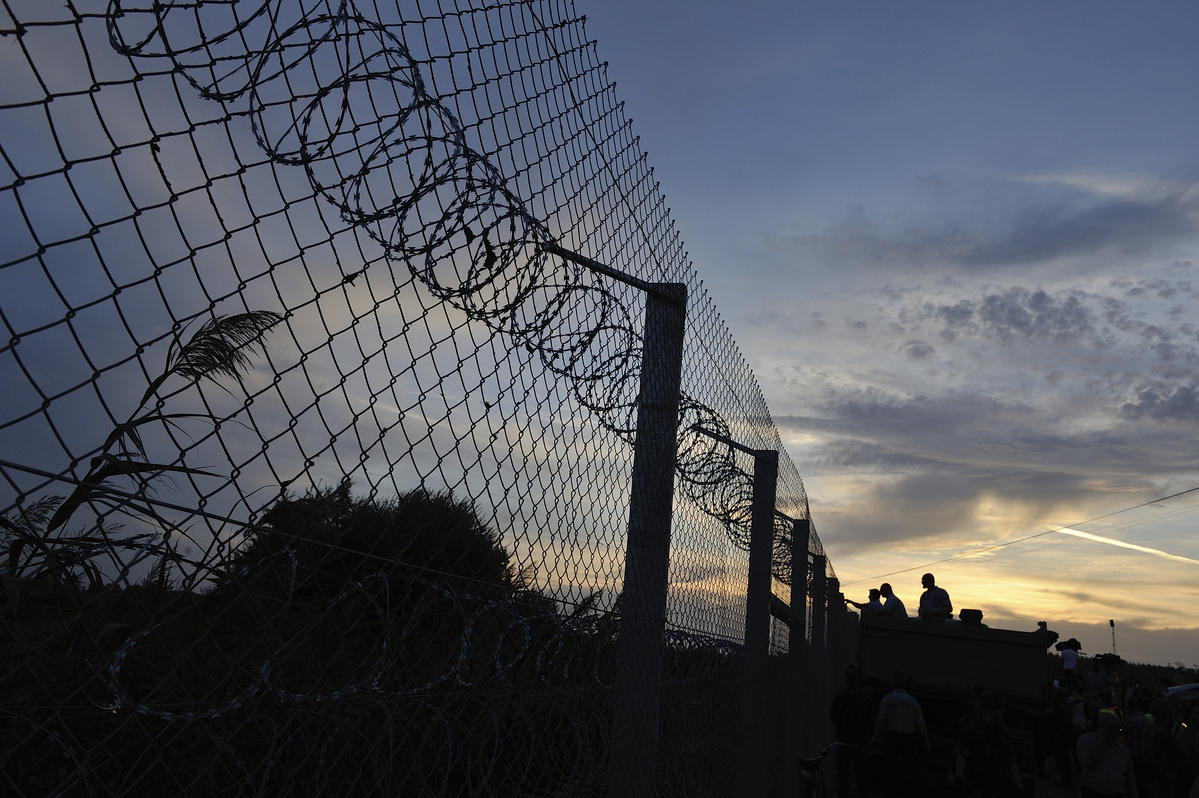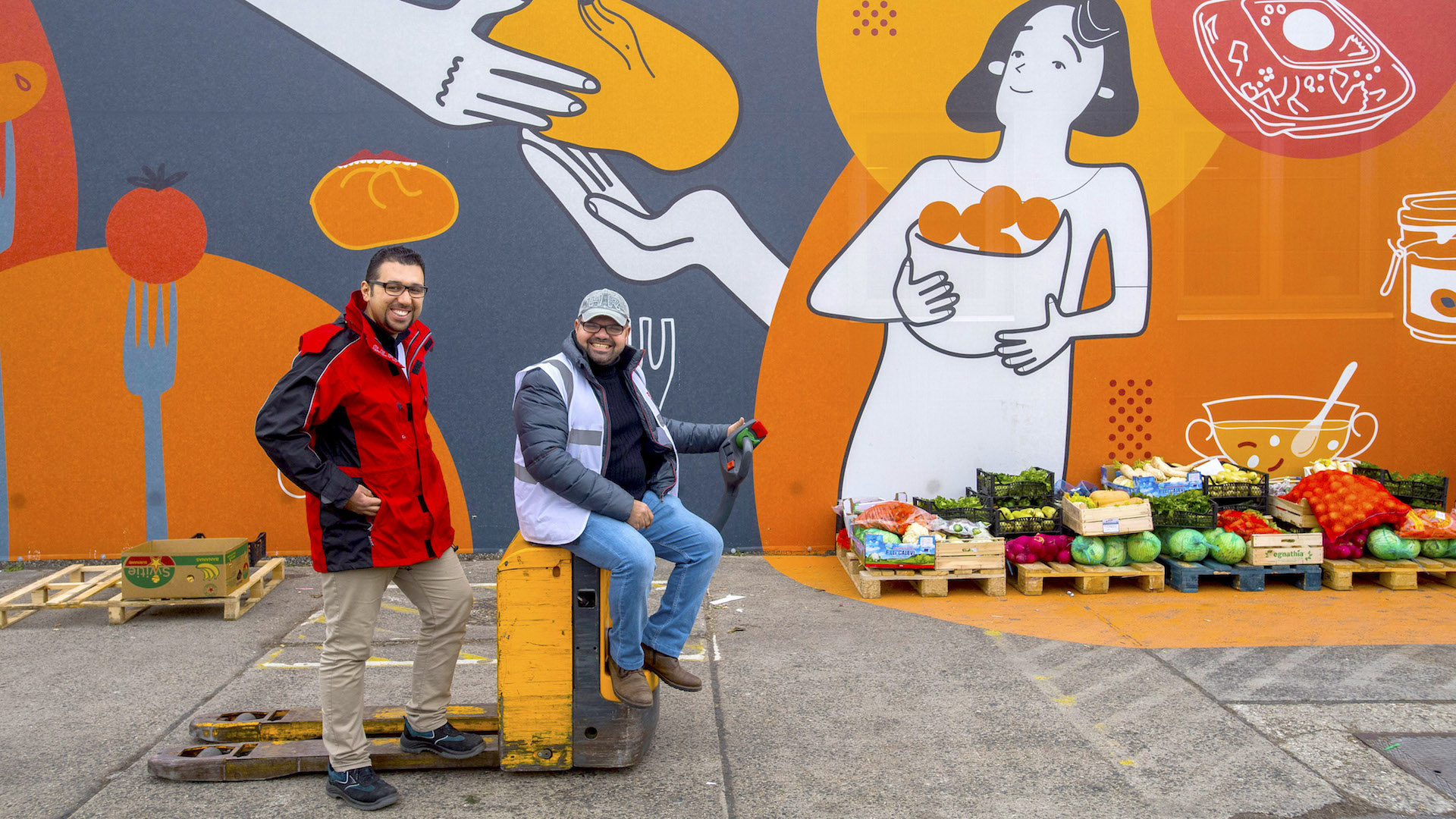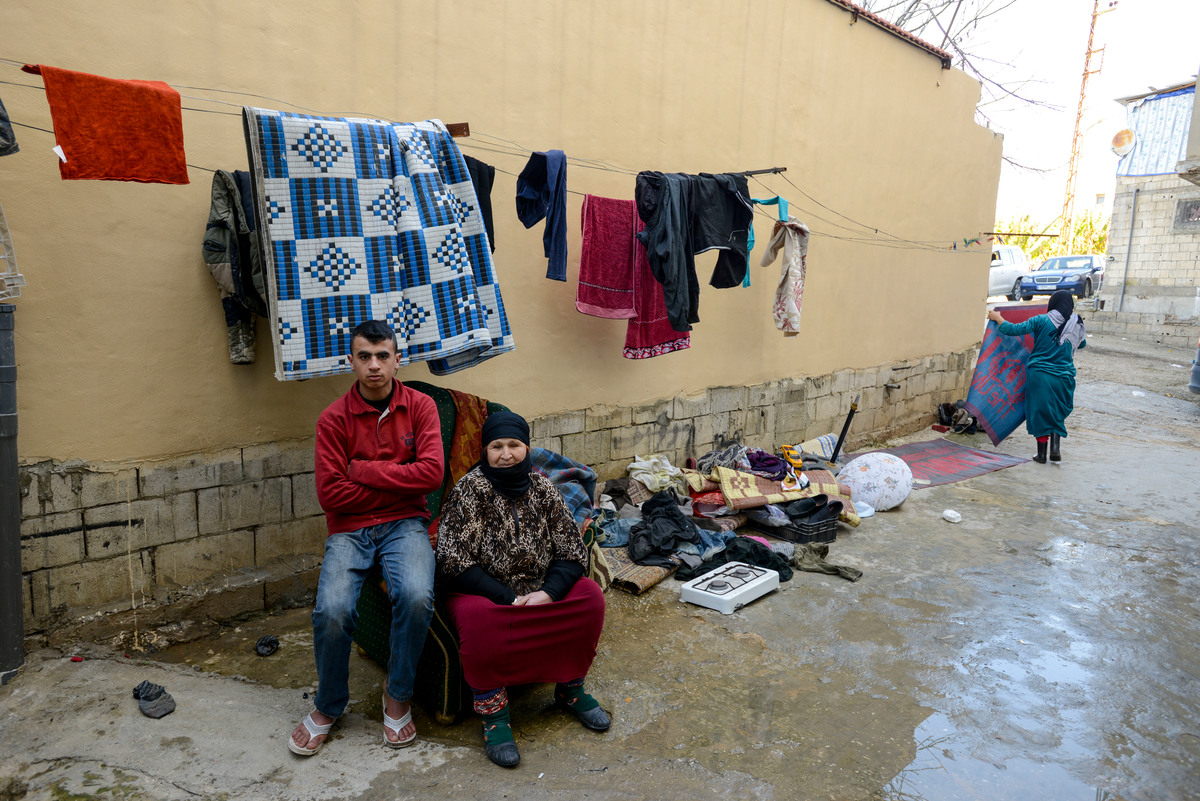In Panama, refugees struggle for recognition amid poverty and fears of deportation
In Panama, refugees struggle for recognition amid poverty and fears of deportation

The parade in Jaque celebrating Panama's independence from Colombia.
JAQUÉ, Panama, (UNHCR) - Piercing drumbeats echoed through this remote, impoverished coastal village as a parade celebrating Panama's independence from Colombia marched down the dusty road from the school house to the town square.
Five young girls led the procession, twirling batons in their short, white satin dresses and boots. Boys marching solemnly in their school uniforms tapped sober military rhythms, spinning their drumsticks in the air between beats. Rows of children brought up the rear.
Although similar parades take place every November across Panama, the Jaqué event is special because many participants and spectators come from among the estimated 300 Colombian refugees who have sought safety here from what has been called the worst humanitarian crisis in the western hemisphere.
Colombia's 40-year-old internal conflict has cost the lives of some 200,000 people, created more than two million internally displaced persons since 1985, and forced tens of thousands of people to flee to neighbouring countries, the United States and Europe.
The Inter-American Commission on Human Rights has said this massive displacement had contributed "to the impoverishment of the population, the disintegration of the family, malnutrition, sickness, alcoholism, drug addiction school absenteeism and common crime."
To help ameliorate the situation UNHCR opened a liaison office in Ecuador, has helped to strengthen asylum procedures in neighbouring countries and in Panama is assisting almost 800 refugees, many of them living along the banks of the Tuira River in isolated Darién Province.
Sixty-eight persons have been officially recognised as refugees. Most of the others are allowed to stay under a "provisional humanitarian status" stipulated by Panamanian law, which in UNHCR's view fails to meet minimum international protection standards.
Difficult conditions
With no roads, one telephone, no industry and little tourism, the people in Jaqué have traditionally eked out a living from small-scale agriculture and fishing. For the refugees, especially the women, finding work is even harder.
"I can't get work during the rice and corn harvests," says Maria, a single mother of three who lives in the nearby village of Yape. She asked that her real name not be used for fear of being deported. "Now, for example, they're clearing land for new fields and nobody will hire me to do that. I can't get work in the plantation fields either, they want men."
But the bluish glow of the fluorescent lights and the hum of sewing machines emerging after dusk from a small building in the town is a sign of hope for the town's refugee population. Inside the squat structure, some 20 Colombian, Panamanian, and indigenous women are learning to sew in one of several programmes funded by the U.N. refugee agency.
"By early next year our little group should be working as a sustainable, micro-enterprise," said Jaime Guarin Panezo, the project's administrator. In fact the women, who are already making shirts, pants, and wreaths, hope to receive their first major contract soon - sewing school uniforms similar to the ones worn by the children in the town parade.
"We have a good time together and can share our experiences," said one seamstress, a refugee from northern Colombia who declined to give her name. "Thanks to the group, I forget my problems. When I first arrived here, I felt frustrated, but now I have something to do."
The viability of the project has become even more important after new government regulations forbade the Colombian asylum seekers to leave Jaqué to work in the surrounding fields and required them to ask for permission if they want to fish in the area.
While actual deportations are rare, the possibility instils fear in many civilians. "I don't have any identity documents, and if the police catch me they may deport me," said Fernando, a stocky 30-year-old man as he stood outside the Catholic Church in the nearby town of Boca de Cupe. Fernando (not his real name) said he had been under pressure to join the Colombian paramilitary troops fighting the Revolutionary Armed Forces of Colombia (FARC), the country's major guerrilla faction.
"If you join the paramilitary you have problems, if you join the guerrillas you have problems, and if you don't join anybody you have problems," Fernando said. "The only option was to leave."
"Being deported back to Colombia is like getting thrown to the wolves."


